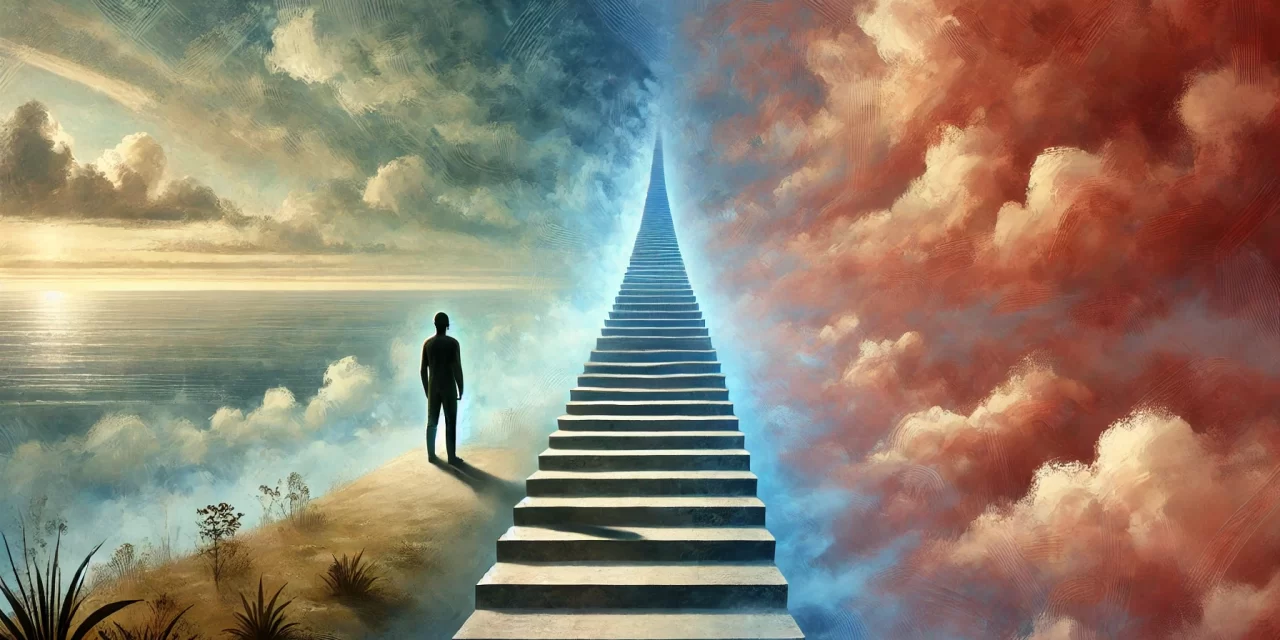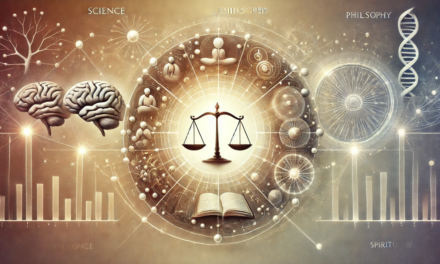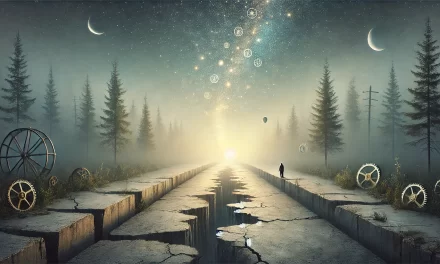We live in a world that never stops demanding more—from us, and from itself. More productivity, more consumption, more control. We’re trained from birth to chase satisfaction through acquisition—of wealth, of knowledge, of status, of security. Yet, no matter how much we get, it never seems to be enough.
At some level, most people sense that something has gone wrong. The systems we live within—economic, technological, social—seem to amplify our worst instincts rather than our best. The more control we try to exert, the more chaotic things become. The more pleasure we pursue, the more restless we feel. The more we try to master the world, the more we feel mastered by it.
The Trap of Endless Consumption
This isn’t just a social or economic problem—it’s deeply personal. It plays out in the smallest moments of our daily lives.
For me, this realization has been painfully personal. I’ve spent much of my life caught in cycles of compulsion—not just for food, but for anything that gives me pleasure or a sense of control. And I know I’m not alone in this. Most of us, in one way or another, are caught in patterns of craving:
- The endless scroll of social media, chasing another hit of novelty.
- The pursuit of wealth or power, thinking the next level will finally bring security.
- The consumption of food, entertainment, or substances as a way to dull discomfort.
- The need to always be right, be in control, be ahead of the curve.
At its core, this is a failure to simply be with reality as it is. It’s as if we can’t encounter life without immediately wanting to grasp it, shape it, consume it, or transcend it.
There’s nothing inherently wrong with pleasure, with knowledge, or with ambition. The problem arises when we can’t stop—when every encounter with life is reduced to a transaction, a problem to solve, or an experience to control.
Why Willpower Isn’t Enough
For a long time, I thought the solution was self-discipline. Just try harder. Just exert more control over my impulses. But that only fed the problem. The more I fought against myself, the stronger the compulsion became.
This is where an old and largely forgotten insight becomes useful: True freedom doesn’t come from control—it comes from stepping outside the cycle of compulsion altogether.
This is why ancient traditions, from Buddhist monks to Christian ascetics, practiced forms of renunciation—not because they hated pleasure, but because they understood something we’ve forgotten: sometimes, the only way to be free from something is to let it go completely.
One of the most extreme examples of this was Simon Stylites, a 5th-century hermit who lived on top of a pillar for decades. To the modern mind, this seems like madness. But perhaps he understood something crucial: that if you remove yourself from the source of temptation long enough, something shifts.
I’m not advocating for living on a pillar. But I do think we need to reconsider what it means to renounce—not as an act of repression, but as an act of liberation.
A Different Kind of Transcendence
Modern culture tells us that freedom is about getting what we want—more pleasure, more choice, more control. But real freedom might be the opposite. It might be about no longer being ruled by what we want.
The real problem isn’t what we consume, but the fact that we can’t stop consuming—whether it’s food, entertainment, information, or control. It’s the sense that we are incomplete, that we need just one more thing to be whole.
But what if that feeling of incompleteness is an illusion? What if, instead of trying to escape it or fill it, we could simply let it be?
This is the paradox of real transcendence: it isn’t about escaping reality. It’s about seeing reality so clearly that the craving itself loses its grip.
Yet here, another paradox arises. If seeing reality clearly frees us from compulsion, does it also free us from responsibility? If nothing is ultimately separate, does that mean nothing matters? The answer, strangely, is no. In fact, the opposite is true.
The Paradox of Seeing Clearly and Acting Justly
Seeing through the illusion of separateness doesn’t erase moral imperatives—it sharpens them. Recognizing that we are not isolated individuals locked in competition doesn’t make justice meaningless—it makes it essential.
If we see clearly, we understand that injustice anywhere affects everything. Letting bullies profit from their tyranny, for example, is not just an abstract problem—it actively damages the whole system, including us. A truly clear view of reality does not lead to passivity, but to a responsibility that is no longer tainted by ego or ideology.
Many ancient traditions saw this distinction clearly. The Bhagavad Gita, for example, teaches that Arjuna must fight—not for personal gain, but because the integrity of the world depends on responsible action. In a nondual worldview, regulation and justice are not about punishing the bad actors, but about restoring balance. The goal is not control, but harmony.
This is the paradox: the clearer we see, the less personal our reactions become—but the more real our responsibility appears.
So What Do We Do?
- Recognizing injustice as real does not mean clinging to rage or retribution.
- Engaging in corrective action does not mean falling into control-driven rigidity.
- Holding responsibility does not mean carrying the burden of the world alone.
The paradox of modern life is that we are caught between compulsion and detachment, between action and surrender. The real challenge is to move beyond compulsion without becoming indifferent, and to act justly without becoming consumed by the need to control.
I won’t pretend I’ve mastered this. I still eat too much. I still seek control. But I also know that in certain moments—when I let go of the need to grasp, consume, or control—a different kind of freedom emerges. A quiet, effortless clarity.
Perhaps the solution to our modern crisis isn’t more—more knowledge, more power, more willpower—but less. Not in the sense of deprivation, but in the sense of letting go of the illusion that we are incomplete.
That’s a kind of transcendence that doesn’t lead to arrogance—but to humility. And it might just be what we’ve been missing all along.
Terry Cooke-Davies
23rd February 2025
Profound thanks to ChatGPT(4o) from OpenAI for assistance with this article.






